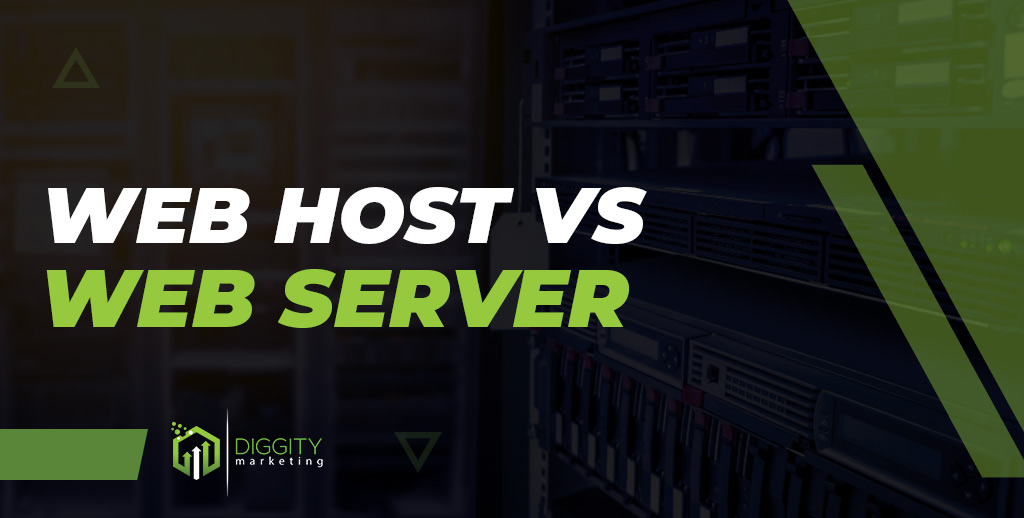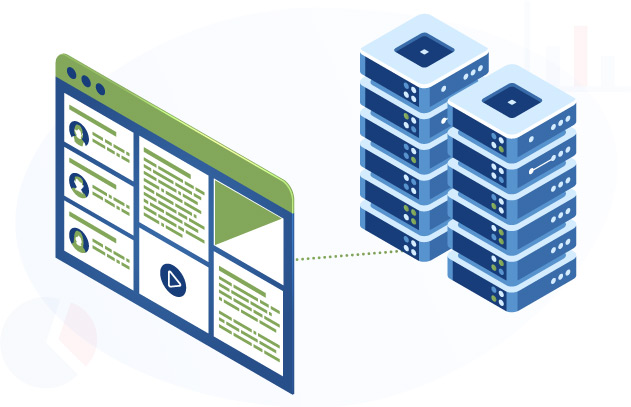Are you one of those people that gets confused between terms like web hosting and web server?
Do you make the mistake of using them interchangeably?
The truth is they are not the same. But, wait!
What does that have to do with your website going live?
Well, you need a web host or your own server if you want your site to be accessible on the internet.
As a veteran web development and digital marketing professional with years of hands-on experience in the industry, I possess a fair bit of knowledge of the essential aspects of website creation and maintenance, including web hosting and server management. Through my experiences, I’ve gathered valuable insights that I’d like to share with you.
Table Of Contents
What Is A Web Server?
A web server is a data center or high-tech machine that allows the website to have easy access to the information required.
The web server uses a trans-coder (a system that produces a transformed version of the website) to connect to the browser.
Web servers can be better understood by visualizing them as computers offering web pages.
A web server can be a piece of hardware or a piece of software simulating a piece of hardware that provides services to all devices on the network.
In terms of software, a web server controls how a user will access hosted files.
Web servers can store and manage website files, delegate computations, and share resources.
There is a unique IP address and domain name for each web server.
Types Of Web Servers
These are a few popular types of web servers available:
File Server – This is a type of computer or storage device designed for storing files. A user makes use of the server to store files on the network.
Database Server – This refers to a device or server dedicated to server hosting. It processes database queries.
Print Server – Print servers allow for sharing the printer with several computers on the same network.
What Is Web Hosting?
Web hosting is the process of hosting a website using a server.
Where hardware is concerned, web hosting service provider makes use of a device or computer for allocating space for users to store their files.
If you want your website to go live, you need to have a web hosting service.
Companies offering internet hosting provide their customer websites with server computers.
Types Of Web Hosting
The four primary types of web hosting available to the general public include:
Shared Hosting – This internet hosting service may work for small businesses, beginners, and freelancers. It involves hosting the website on a single server that has other websites as well. Splitting resources, like CPU cores, bandwidth, and RAM helps in keeping costs relatively low.
VPS Hosting – Virtual private server (VPS) hosting is a great option for websites that require more resources. There is a shared physical server, but the websites get hosted on their own space within the server. VPS website owners get more customization and storage options.
Dedicated Hosting – Your website will be the only website on the server if you choose dedicated server hosting. All resources will belong to you since yours will be the only website housed on the server. You would be able to control everything, including the operating system in use.
Cloud Hosting – Cloud hosting (or shared hosting) plans involve multiple remote servers and there is always a server within the network if one server has a problem and goes down. These servers are among the most scalable servers allowing users to increase server resources as site visitors and business grows.
What Is The Difference Between A Web Server And A Web Host?
The major difference between a web server and web hosting is that a web host needs to always be connected to the internet while a web server can be either connected to the LAN or the internet.
Another important difference is that web hosts can both consume and share resources while a web server only shares services and resources.
Web servers are used for hosting websites and almost always contain more than one site.
These are a few other differences between the two:
| Area of Difference | Web Server | Web Host |
|---|---|---|
| Computer or Process | Web servers are computers used for running websites | Web hosting refers to a process that is used by a server for hosting the site |
| Purpose | Servers are used for hosting websites. They almost always contain multiple websites. | Hosting involves making a website accessible to visitors through the internet |
| Services | Web servers provide services to programs and devices in a particular network | Web hosting allows users to make their site accessible through the WWW |
| Storage | Web servers store web server software and necessary component files of the website | Web hosting environment only publishes and uses a web server for storing the web pages to be accessed through the internet |
| Network Usage | Web servers process user network requests for serving files that create the different web pages | Web hosting uses other networks for relaying the same set of information |
| Objective | The primary objective is to store, process and deliver web pages to different users | The primary objective is to keep all the different web pages on the server. Hosting services take care of technical and setup issues as well. |
| Benefits | Web servers allow for standardized coding, hassle-free installation, customized server setting, and deployment | Web hosting services improve the security and performance of a website while providing technical support |
Knowing The Difference
Even though they sound similar there is a difference between a web host and a web server. And you could see mixed opinions and debates on Web Hosting vs Server.
A web server is a computer that runs your website while web hosting is the process of making those websites accessible to the user by using a web server.
Knowing the difference between the two helps you understand the ins and outs of web hosting which can help you become a better web designer and help you make the right choice for the premium web hosting provider for you.
If you would like to know more about the best web hosting company for beginners you can check out this guide here for everything you need to know.








